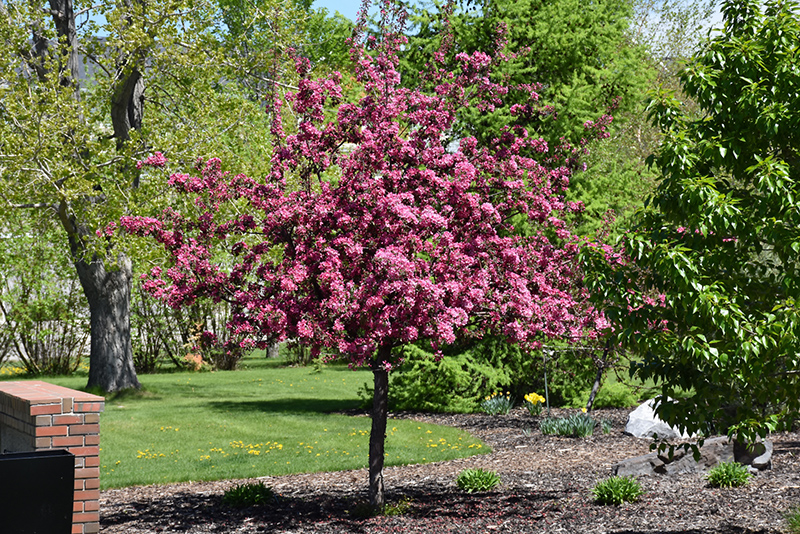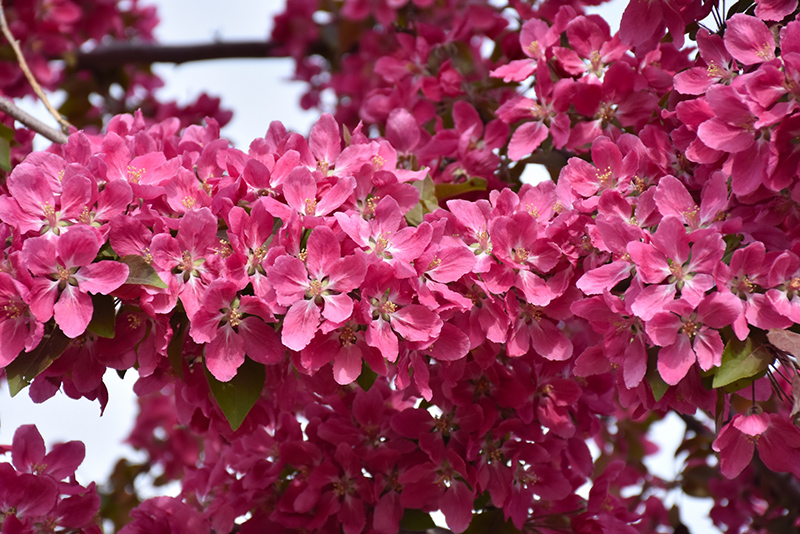Height: 20 feet
Spread: 15 feet
Sunlight:
![]()
![]()
Hardiness Zone: 3
Other Names: Roseybloom, Crabapple
Description:
This is a new variety with a profusion of stunning red and pink flowers in spring and crimson-red fruit in fall, upright habit of growth; makes an incredible accent for the smaller home landscape, needs well-drained soil
Ornamental Features
Big River Flowering Crab is covered in stunning clusters of fragrant pink flowers with cherry red overtones along the branches in mid spring, which emerge from distinctive red flower buds before the leaves. The fruits are showy crimson pomes carried in abundance from early to late fall. It has dark green foliage with coppery-bronze undersides. The pointy leaves turn yellow in fall.
Landscape Attributes
Big River Flowering Crab is a deciduous tree with an upright spreading habit of growth. Its average texture blends into the landscape, but can be balanced by one or two finer or coarser trees or shrubs for an effective composition.
This tree will require occasional maintenance and upkeep, and is best pruned in late winter once the threat of extreme cold has passed. It has no significant negative characteristics.
Big River Flowering Crab is recommended for the following landscape applications;
- Accent
- Shade
Planting & Growing
Big River Flowering Crab will grow to be about 20 feet tall at maturity, with a spread of 15 feet. It has a low canopy with a typical clearance of 4 feet from the ground, and is suitable for planting under power lines. It grows at a medium rate, and under ideal conditions can be expected to live for 50 years or more.
This tree does best in full sun to partial shade. It prefers to grow in average to moist conditions, and shouldn't be allowed to dry out. It is not particular as to soil type or pH. It is highly tolerant of urban pollution and will even thrive in inner city environments. This particular variety is an interspecific hybrid.








